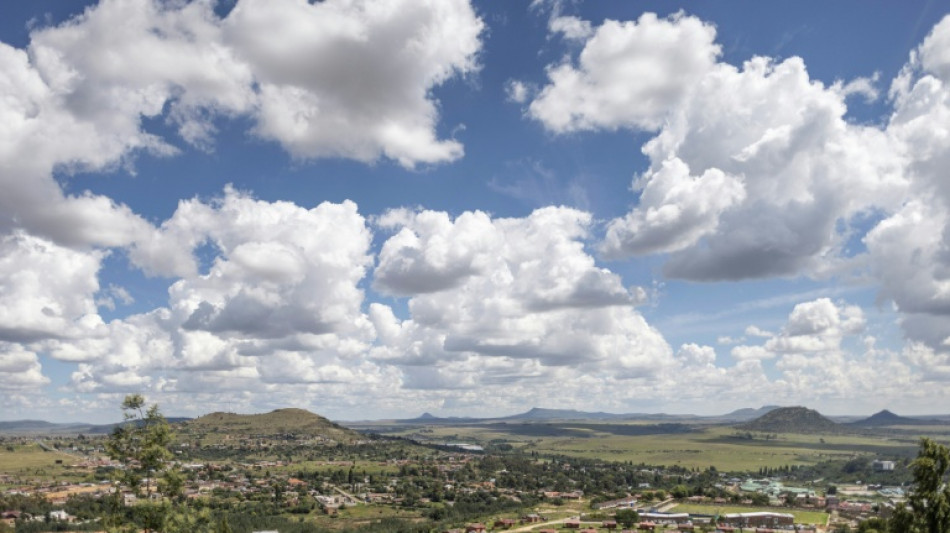
-
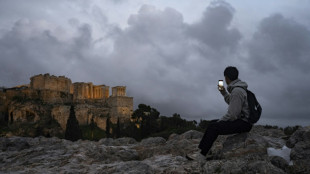 Greece nixes Acropolis shoot for 'Poor Things' director
Greece nixes Acropolis shoot for 'Poor Things' director
-
'Historic moment': South Koreans react to Yoon's dismissal
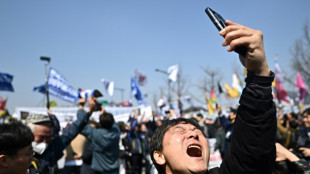
-
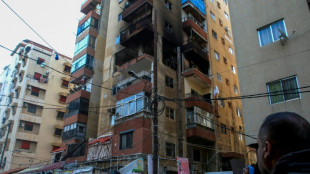 Israel kills Hamas commander in Lebanon strike
Israel kills Hamas commander in Lebanon strike
-
Trump unveils first $5 million 'gold card' visa
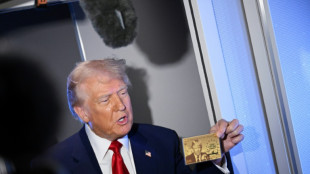
-
 Crashes, fires as Piastri fastest in chaotic second Japan GP practice
Crashes, fires as Piastri fastest in chaotic second Japan GP practice
-
India and Bangladesh leaders meet for first time since revolution
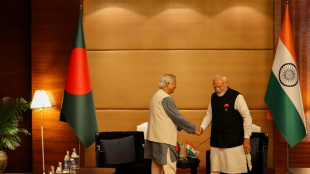
-
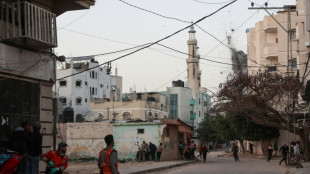 Israel expands ground offensive in Gaza
Israel expands ground offensive in Gaza
-
Families of Duterte drug war victims demand probe into online threats
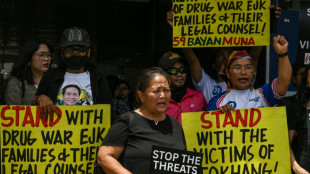
-
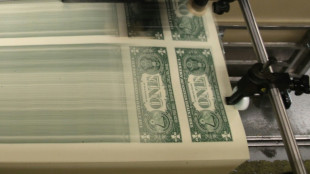 Stocks extend global rout after Trump's shock tariff blitz
Stocks extend global rout after Trump's shock tariff blitz
-
Kolkata's Iyer more bothered about impact than price tag

-
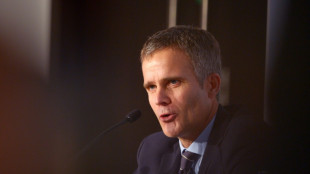 BP chairman to step down after energy strategy reset
BP chairman to step down after energy strategy reset
-
Indian patriotic movie 'icon' Manoj Kumar dies aged 87
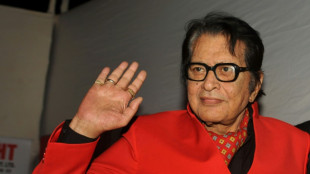
-
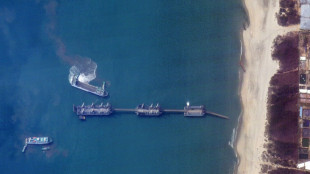 China floats battle barges in Taiwan invasion plans
China floats battle barges in Taiwan invasion plans
-
McLaren's Piastri fastest in chaotic second Japanese GP practice

-
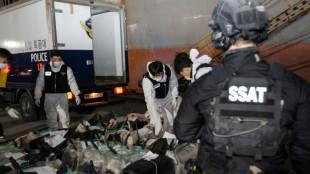 South Korea seize two tons of cocaine in largest-ever drug bust
South Korea seize two tons of cocaine in largest-ever drug bust
-
Pacific nations perplexed, worried by Trump tariffs
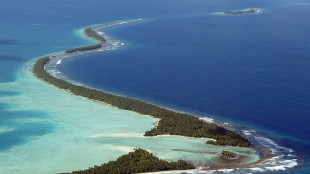
-
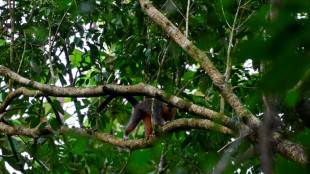 The race to save the Amazon's bushy-bearded monkeys
The race to save the Amazon's bushy-bearded monkeys
-
TikTok must find non-Chinese owner by Saturday to avert US ban
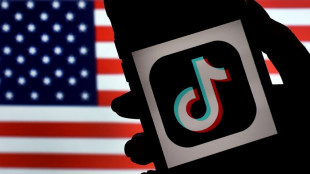
-
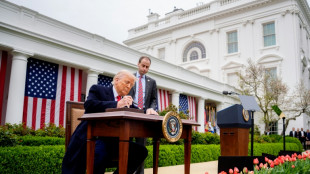 Trump tariffs to test resiliency of US consumers
Trump tariffs to test resiliency of US consumers
-
Clamping down on 'forever chemicals'
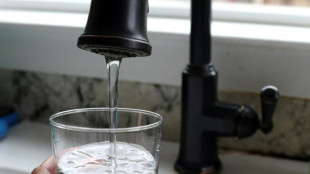
-
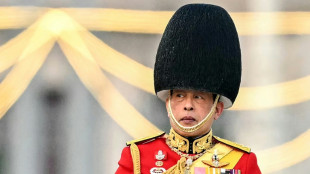 Prominent US academic facing royal insult charge in Thailand
Prominent US academic facing royal insult charge in Thailand
-
Yana, a 130,000-year-old baby mammoth, goes under the scalpel
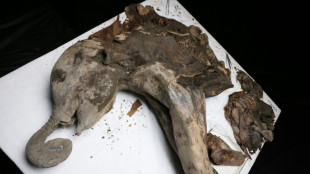
-
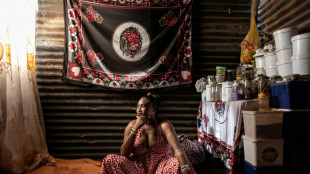 'Don't want to die': Lesotho HIV patients look to traditional medicine
'Don't want to die': Lesotho HIV patients look to traditional medicine
-
Curry scores 37 as Warriors outgun LeBron's Lakers

-
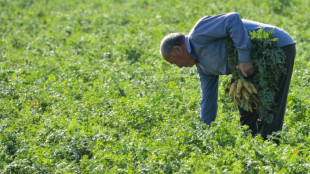 Crops under threat as surprise March heatwave hits Central Asia: study
Crops under threat as surprise March heatwave hits Central Asia: study
-
Japan PM says Trump tariffs a 'national crisis'

-
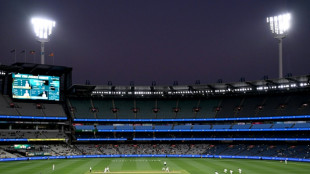 Security 'breakdown' allows armed men into Melbourne's MCG
Security 'breakdown' allows armed men into Melbourne's MCG
-
Norris fastest in Japan GP first practice, Tsunoda sixth on Red Bull debut

-
 Albon says Thailand taking bid for F1 race 'very seriously'
Albon says Thailand taking bid for F1 race 'very seriously'
-
'It's gone': conservation science in Thailand's burning forest
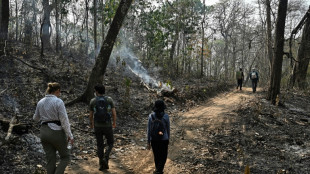
-
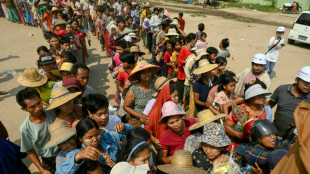 Protest as quake-hit Myanmar junta chief joins Bangkok summit
Protest as quake-hit Myanmar junta chief joins Bangkok summit
-
EU leaders push for influence at Central Asia summit
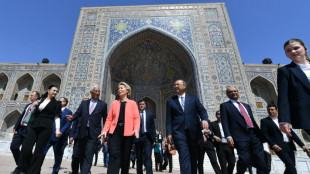
-
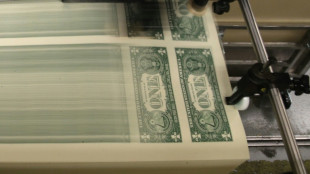 Asian stocks extend global rout after Trump's shock tariff blitz
Asian stocks extend global rout after Trump's shock tariff blitz
-
Lewandowski, Mbappe duel fuelling tight La Liga title race

-
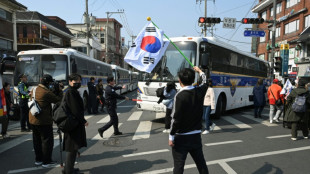 South Korea court upholds President Yoon's impeachment, strips him of office
South Korea court upholds President Yoon's impeachment, strips him of office
-
Liverpool march towards title as Man City face Man Utd

-
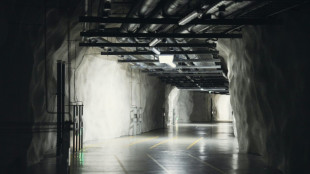 Finland's colossal bomb shelters a model for jittery Europe
Finland's colossal bomb shelters a model for jittery Europe
-
Athletes frustrated as France mulls Muslim headscarf ban in sport
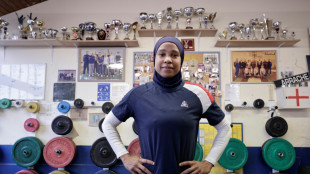
-
 Korda downs Kupcho to stay alive at LPGA Match Play
Korda downs Kupcho to stay alive at LPGA Match Play
-
German industry grapples with AI at trade fair
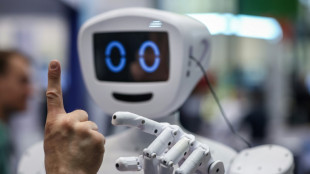
-
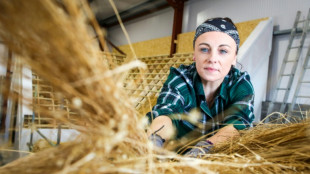 Irish school trains thatchers to save iconic roofs
Irish school trains thatchers to save iconic roofs
-
'Frightening': US restaurants, producers face tariff whiplash
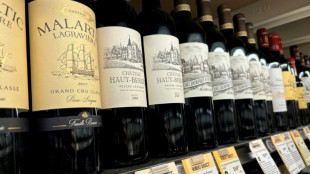
-
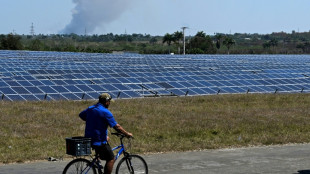 Cuba looks to sun to solve its energy crisis
Cuba looks to sun to solve its energy crisis
-
Experts warn 'AI-written' paper is latest spin on climate change denial
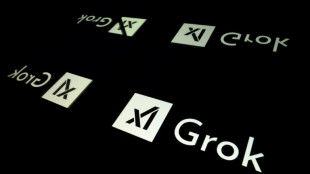
-
 PSG eye becoming France's first 'Invincibles'
PSG eye becoming France's first 'Invincibles'
-
Late birdie burst lifts Ryder to Texas Open lead

-
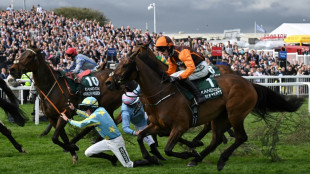 Five potential Grand National fairytale endings
Five potential Grand National fairytale endings
-
Trump purges national security team after meeting conspiracist
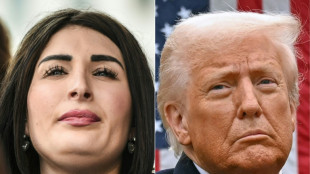
-
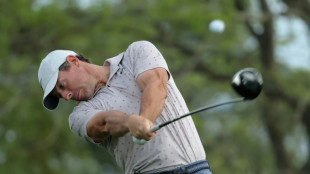 More work for McIlroy even with two wins before Masters
More work for McIlroy even with two wins before Masters
-
Trump hopeful of 'great' PGA-LIV golf merger
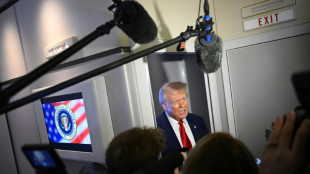

Lesotho, Africa's 'kingdom in the sky' jolted by Trump
US President Donald Trump in March ridiculed Lesotho as a place "nobody has ever heard of" and then this week hit the tiny African kingdom with the highest of his reciprocal trade tariffs for any single nation.
Here are some things to know about the country sometimes called the Switzerland of Africa because of its mountainous landscape.
- 'Kingdom in the sky' -
Completely surrounded by South Africa, Lesotho is the largest of only three enclaved states in the world, far bigger than San Marino and the Vatican City, both of which are within Italy.
At 30,355 square kilometres (11,720 square miles), it is about the same size as Belgium.
Its population is roughly 2.3 million, compared to Belgium's nearly 12 million.
Lesotho is known for the beauty of its mountainous terrain and styles itself the "Kingdom in the Sky".
More than 80 percent of the country sits 1,800 metres (5,900 feet) above sea level and it is home to southern Africa's only ski resort.
The highest peak is Mount Thabana Ntlenyana, with an altitude of at 3,482 metres.
A constitutional monarchy, it is ruled by 61-year-old King Letsie III, who has no formal power. The government is led by a prime minister.
- Textile economy -
With a annual gross domestic product of just over $2 billion, Lesotho is largely dependent on South Africa -- it biggest trading partner -- from which it imports most of its food, selling water in return.
The economy is heavily reliant on textile exports bound for the United States through the African Growth and Opportunity Act (AGOA) trade deal which provides duty-free access to the US market for some African products.
Its traditional Basotho blankets are a national symbol and renowned for their vibrant patterns and woollen warmth. They are often loaded with meaning, from celebrating life and nationality, to fertility and royalty, peace, love and courage.
Lesotho ranks among the world's poorest countries despite huge mineral reserves.
British mine company Gem Diamonds said in 2018 it had discovered a 910-carat stone in one of its several Lesotho diamond mines.
The country also pioneered the growing of cannabis for medical use in Africa.
Unemployment has remained stubbornly high, hitting nearly 25 percent in 2023, according to the World Bank.
- Royal row -
A charity co-founded by Prince Harry in Lesotho to help people living with HIV ran into turbulence this month after a bitter boardroom row led King Charles III's younger son to step down as patron.
Its Zimbabwe-born chairperson, Sophie Chandauka, publicly accused the prince of "bullying" and being involved in a "cover up", accusations the former royal has dismissed as lies.
Harry founded the charity in 2006 with Prince Seeiso of Lesotho, before it expanded to Botswana.
The name, Sentebale, is a tribute to his mother, Princess Diana, who died in a Paris car crash in 1997 when he was just 12.
- HIV pandemic -
At least one in four adults in Lesotho is infected with HIV, in one of the highest rates in the world.
More than 230,000 people were receiving anti-retroviral treatment in 2021, according to the World Health Organization.
In 2020, the country achieved the UN's "90-90-90" goal of 90 percent of people with the virus being diagnosed, on treatment and achieving viral suppression.
The country also has the second-highest incidence of TB in the world, estimated at 724 cases per 100,000 people.
A.Mahlangu--AMWN